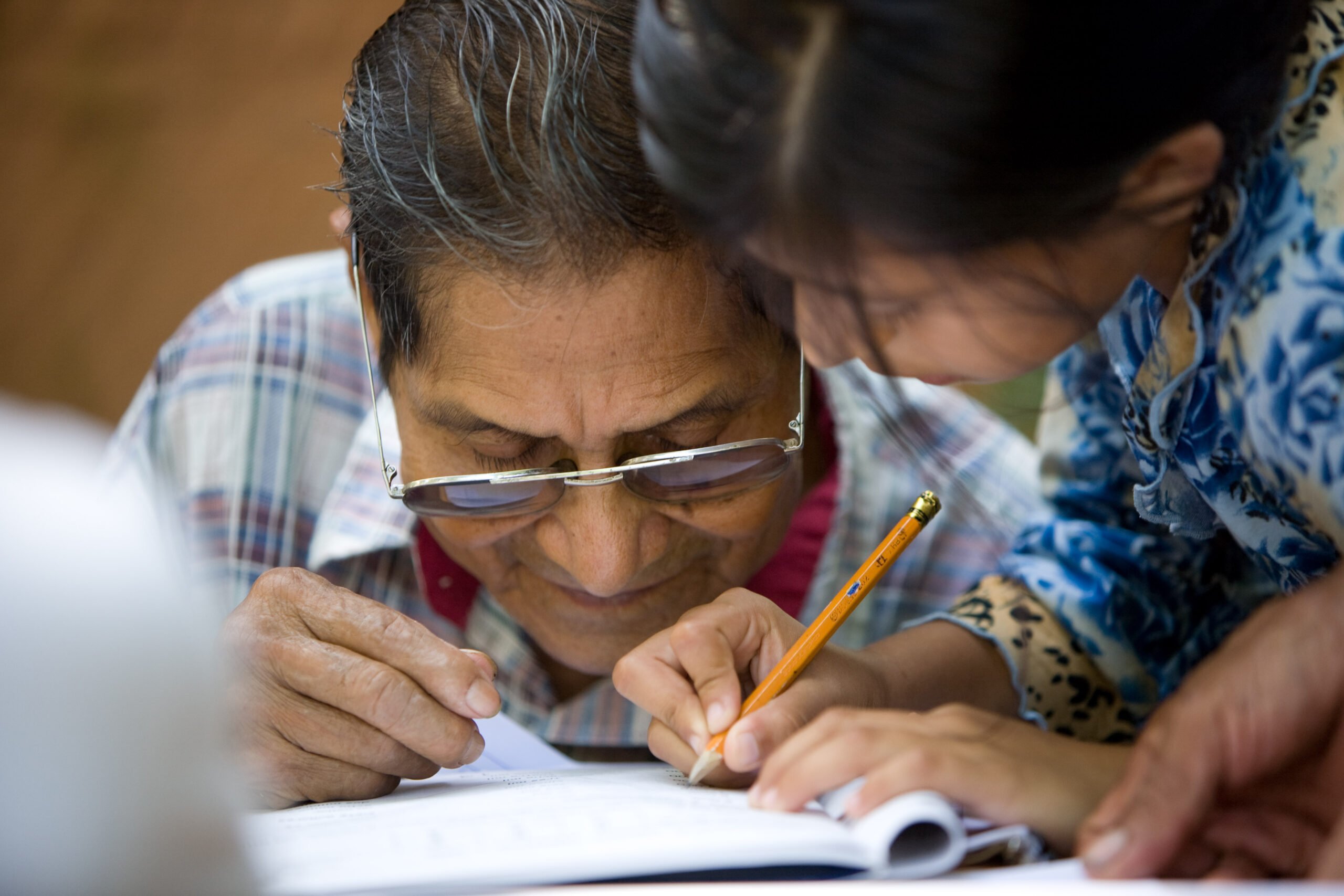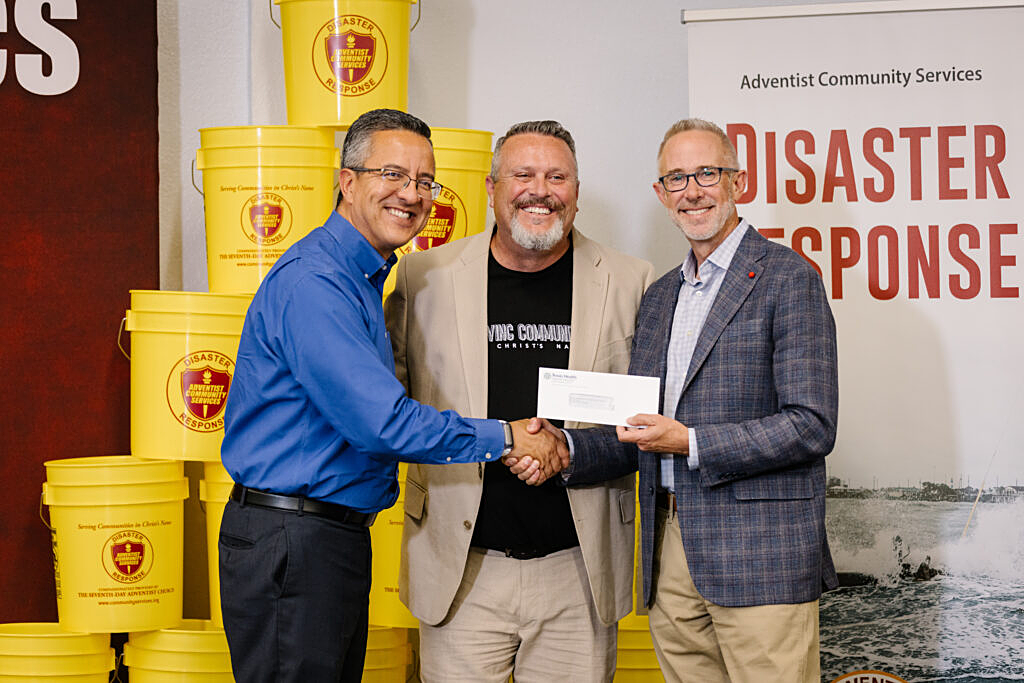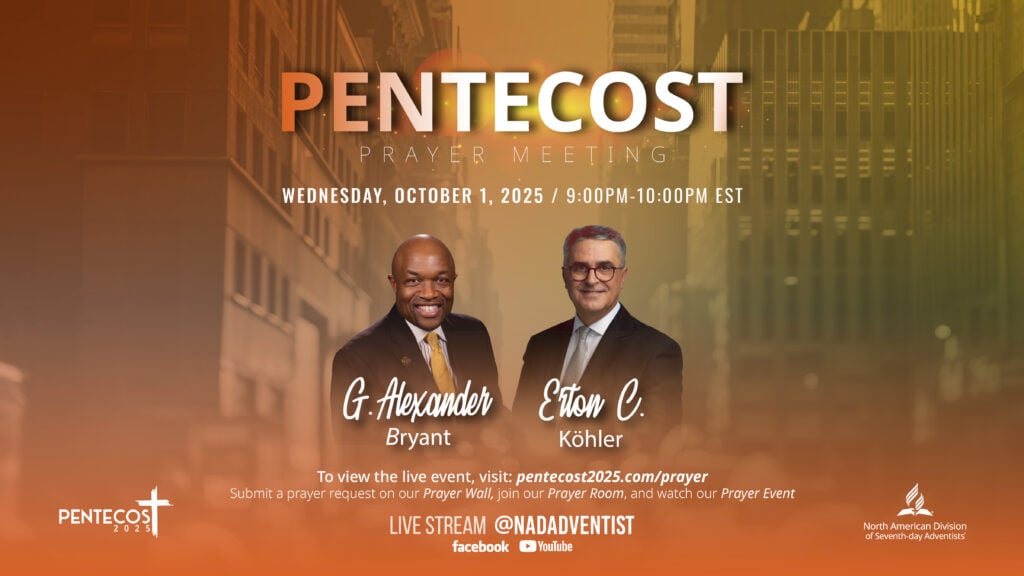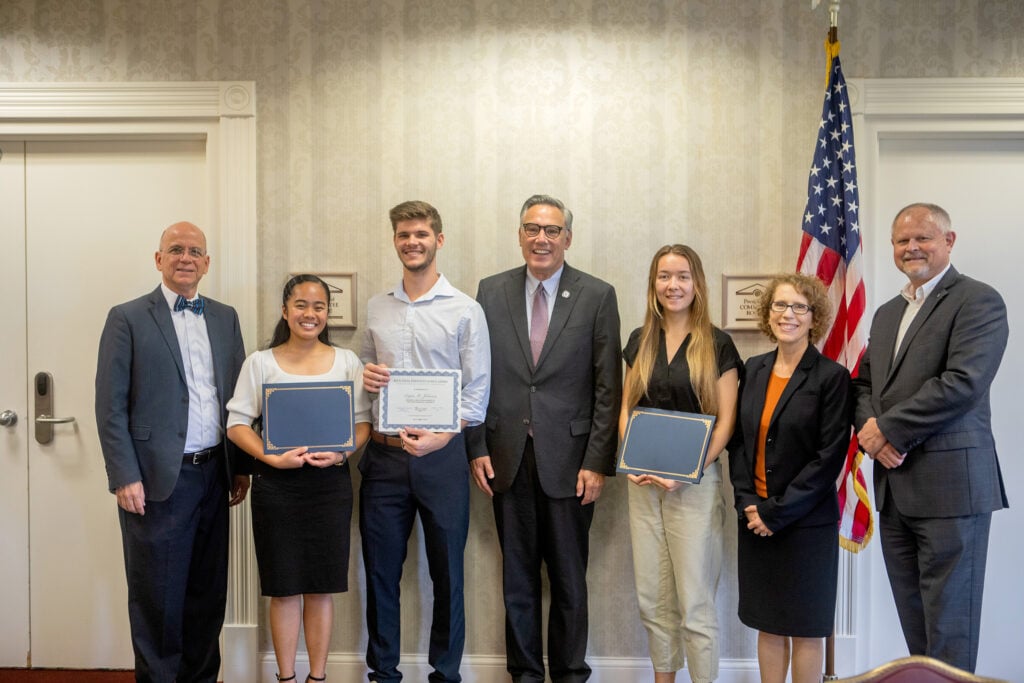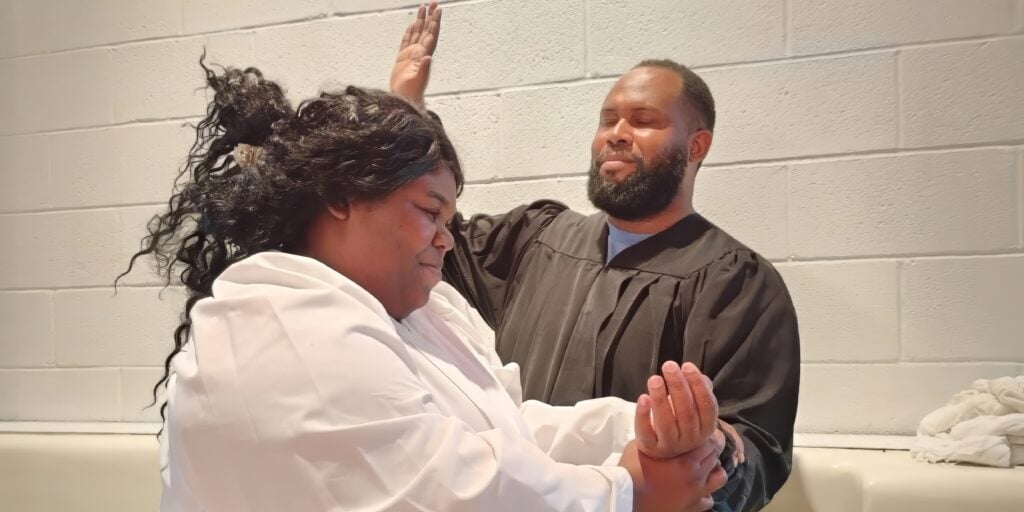Yader José Garcia Cruz is from Paraná in the La Unión Department of El Salvador. He was declared deceased when he was born, but by God’s miracle he came back to life. However, he suffered brain damage that impeded his development, which eventually affected his ability to learn how to read and write, even through his teenage years.
Cruz’s teachers stigmatized him and told his mother that it was impossible for him to learn to read and write. The school recommended that he see a psychologist for a further assessment. The psychologist confirmed what everyone had already believed. This led Cruz to abandon school altogether. He gave up hope.
His mother never gave up. She learned of an opportunity through a literacy program offered in her community by the local Adventist church. His mother was particularly impressed with the personalized lessons it offered. She decided to enroll her son.
Now, at 36 years old, he knows how to sign his name, write many words, and read.
“I thank God for this miracle, my mother’s initiative, the literacy promoter of the area, and everyone who had a direct and indirect part to play to help me get to this point,” said Cruz. “Today I can read and write.”
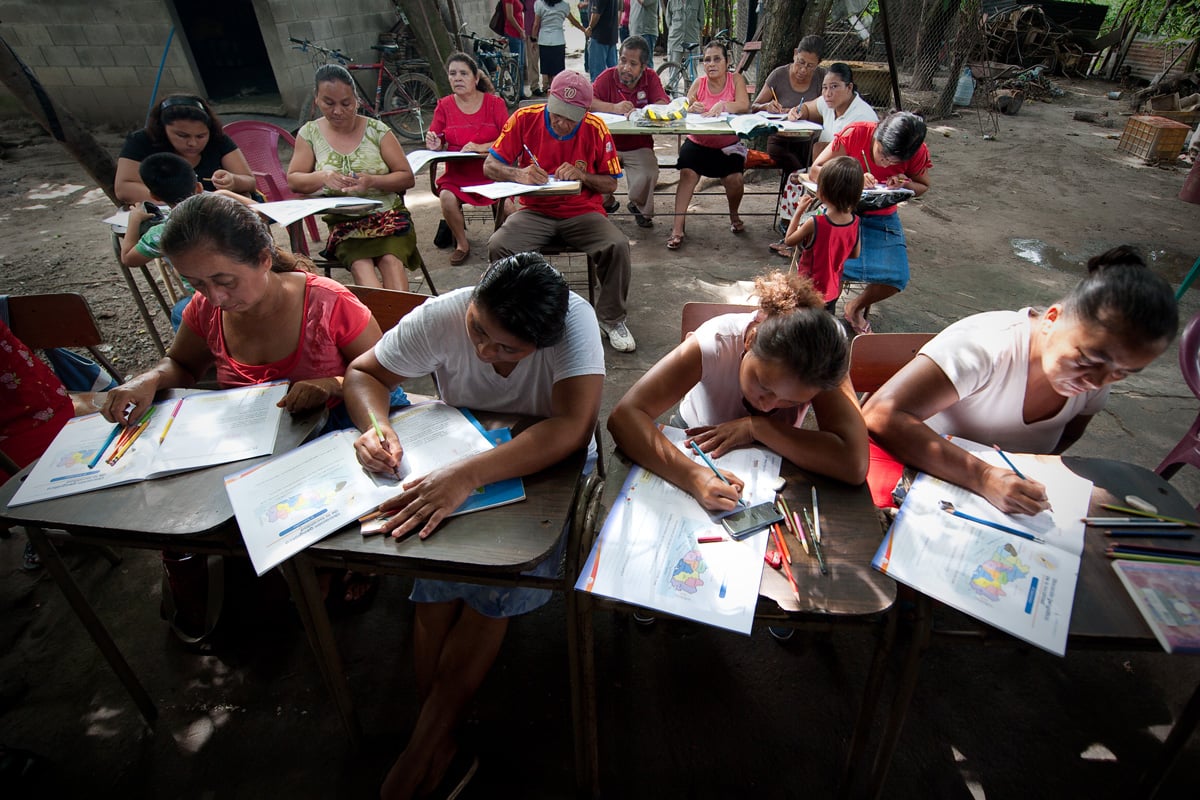
People of the Word
It is estimated that 750 million people worldwide are illiterate. For nearly two decades the North American Division (NAD) has sponsored adult literacy initiatives through its Partners in Mission program with sister divisions and mission fields. The partnerships have given more than 180,000 adults the gift of literacy.
Before there was Partners in Mission, there was Hope for Humanity, which served as the division’s Ingathering effort for outreach. For years Hope for Humanity provided literacy training in Mozambique and India, as well most of the countries in Central America. Leaders found it essential to communicate the NAD’s primary purpose to reach the world with the distinctive Seventh-day Adventist message of hope and wholeness. This led to the creation of Partners in Mission. “This is an initiative of the NAD supported by Hope For Humanity funds in which NAD partners with sister divisions around the world on mutually agreed upon mission initiatives—primarily adult literacy,” explained Maitland DiPinto, presidential representative for Partners in MIssion and director of Hope for Humanity.
A first formal action in the process was the 2017 signing of a Partners in Mission Memorandum of Understanding (MOU) by the president of the North American Division, Daniel R. Jackson, and then president of the Inter-American Division (IAD), Israel Leito. The MOU highlighted the longstanding partnership that has existed between the two divisions and their commitment to addressing adult illiteracy. During that same year a video report at the General Conference Spring Meeting announced that Adventist World magazine had become a partner with the NAD and the IAD in the literacy program.
Today there are Partners in Mission programs operating in 11 countries. Some of these include India, Egypt, Lebanon, and, of course, El Salvador.
“We Adventists say that we’re people of the Word, but how can you be ‘people of the Word’ if you can’t read the Word?” said DiPinto. “As a result of these partnerships, thousands of Adventist members have been engaged in life-changing ministry. Many churches have been planted, and several thousand have become members of the Seventh-day Adventist Church.”
Eyes on Expansion
Church leaders are seeing how this program helps to fulfill the church’s mission and are interested in expanding it to other areas of their territory. But the current program is not entirely financially sustainable.
In El Salvador, for example, there are approximately 200 literacy circles. The cost for the stipends for volunteers alone amounts to $5,000 a month, which is shared between the local union conferences, local conferences, IAD, and NAD. Local church leaders want to grow the program to more than 900 literacy circles, which would bring the stipend cost to $22,000 a month.
“The NAD would not be able to partner financially in this expansion, and the union conference and local conferences would find it very difficult to do it on their own,” said DiPinto. “The same situation is true in all other fields as well.”
DiPinto says a solution is to have the teachers, or “facilitators,” work as volunteers and in a less-intensive capacity. He also suggests that literacy circles should be church-based rather than conference- or mission-based, as is currently the practice in most fields.
“This would have several benefits. The financial benefit is that a literacy circle would not start until a local church agrees to take responsibility for supervising and supporting the circle, including the cost of the facilitators’ stipend—if that territory decides to give one,” said DiPinto. “If a church cannot afford to pay the stipend, fund-raising cards would be provided so they could contact local businesses to raise the funds needed. This approach has worked successfully in conjunction with the literacy program in the Dominican Republic.”
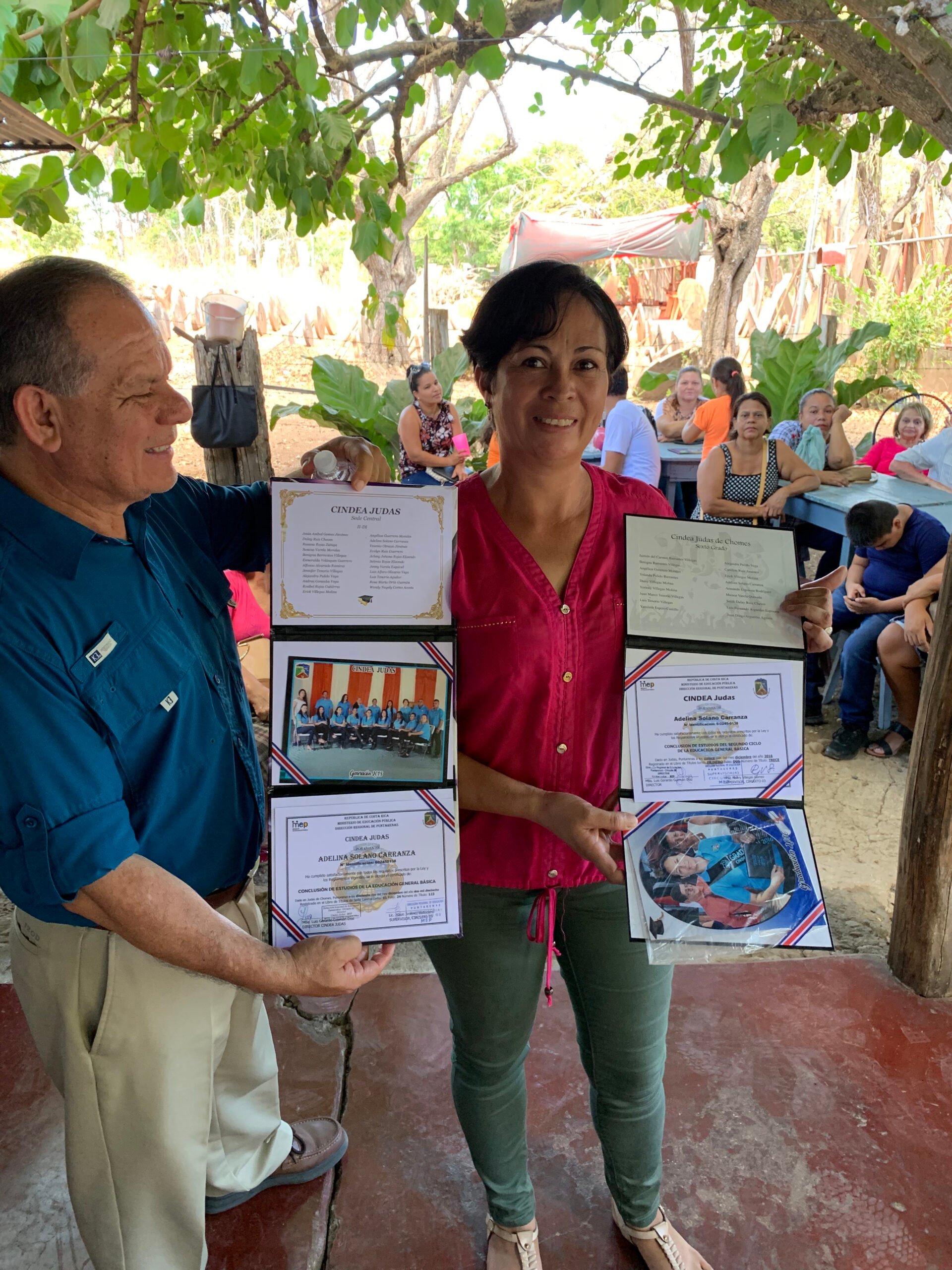
The Proposal
Accessible and effective curriculum are two issues being addressed in order to meet the needs of an expanding program.
“Many of our literacy programs have been in collaboration with the local government education department, which would put together syllabi and offer training to the facilitators,” said DiPinto. “Through those relationships most of the books are provided for free. But we don’t have that opportunity everywhere.”
And while useful, the materials are not tailored to the experiences of the adult learners in their specific contexts, which leaves a gap for a more effective curriculum.
“These issues have been successfully addressed by the Partners in Mission literacy program in Costa Rica,” said DiPinto. “They’re using an innovative participation approach called REFLECT, which does not utilize traditional literacy primers, but rather the learners develop their own materials based on their real-life situations.”
The volunteer-led REFLECT, a 10-month program that meets once a week, allows learners to take the reins on what they want to learn to help with their daily lives. They “reflect” what they’ve learned in practical terms. Lessons can cover a wide range of topics, including health and spirituality. Adults can also request to learn more about the industries in which they wish to pursue employment.
“This is a participatory methodology that is an outgrowth of what people are interested in themselves and builds upon what they already know,” said DiPinto. “With REFLECT you’re involved and engaged. You’re even doing a little teaching because you’re helping one another. It’s a much more effective methodology for adult education.”
Plans are under way to start the REFLECT methodology in the church’s Middle East and North Africa field, the Philippines, Kolkata, Croatia, Macedonia, and Papua New Guinea.
“There will need to be ongoing evaluation and perhaps adaptation to ensure that this approach provides the same level or greater success as our initial approach,” said DiPinto. “It shows great promise.”
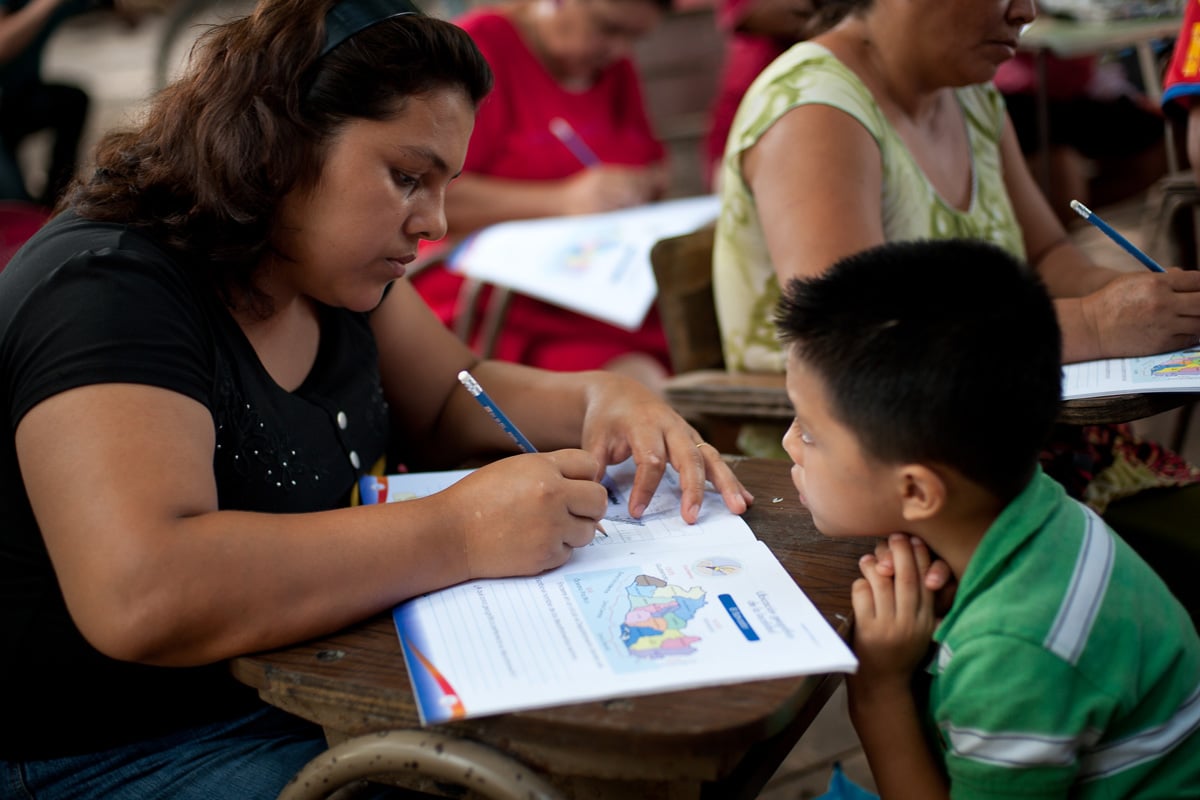
Rosalina’s Story
Rosalina Rivas Pineda is one of seven Salvadoran women who have pursued literacy through the Partners in Mission program at the El Riel Seventh-day Adventist Church in the Central El Salvador Conference. The small group decided to persevere “despite the difficulties that arise in their life from not knowing how to read or write, and bring their families forward and achieve their dream of reading the Word of God by themselves,” said David Poloche, Adventist Development and Relief Agency director for the IAD, in a recent literacy report. ADRA El Salvador helps manage the program on behalf of the church.
At 42, Pineda had never attended a school, and was completely illiterate. Introverted, she spoke very few words when she began classes in the literacy circle. “In her testimony she thanked God and her facilitators for the opportunity to allow her to learn to read and write,” Poloche reported. That was all she said.
Now she is more confident and sociable with members of the church because of her involvement in the literacy class, where she has learned to read and write. “Pineda and the other women in the group serve as examples to their families, community, and church,” said Poloche. “This isn’t easy at their age, and as members of the church they have provided a good example of perseverance.”
The promise shown in Pineda, and around the globe with Partners in Mission and the new REFLECT methodology, centers on working collaboratively. As DiPinto shared in the 2017 GC Spring Meeting video report: “The Adventist Church is a family . . . and we are united in mission to reach the world with the distinctive Seventh-day Adventist message of hope and wholeness. . . . We [have] particular interest in helping to expand the adult literacy initiative that the NAD has helped support for years in a number of countries.”
